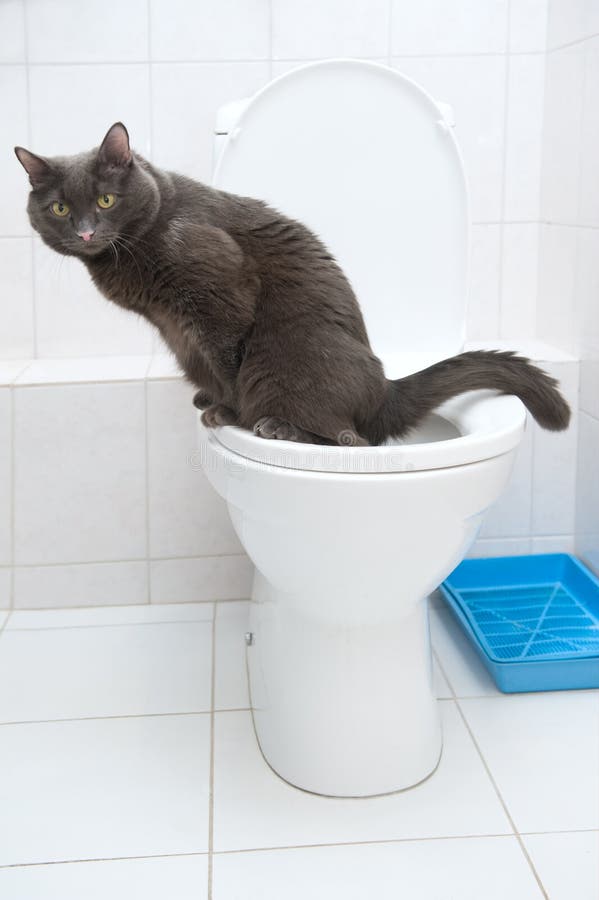Potential Issues of Flushing Cat Poop Down Your Toilet - Safeguard Your Pipes
Potential Issues of Flushing Cat Poop Down Your Toilet - Safeguard Your Pipes
Blog Article
Presented here below you might get a good deal of excellent help and advice when it comes to Can You Flush Cat Poop Down The Toilet?.

Intro
As cat owners, it's necessary to bear in mind just how we dispose of our feline buddies' waste. While it may seem hassle-free to purge pet cat poop down the toilet, this practice can have destructive consequences for both the environment and human health.
Environmental Impact
Flushing cat poop presents harmful microorganisms and bloodsuckers into the water system, presenting a substantial threat to marine ecological communities. These impurities can negatively impact marine life and compromise water high quality.
Health and wellness Risks
In addition to environmental issues, flushing pet cat waste can additionally posture wellness threats to people. Feline feces may contain Toxoplasma gondii, a parasite that can trigger toxoplasmosis-- a potentially severe illness, specifically for expecting women and individuals with damaged body immune systems.
Alternatives to Flushing
Luckily, there are much safer and much more responsible means to take care of feline poop. Think about the following choices:
1. Scoop and Dispose in Trash
One of the most common approach of taking care of pet cat poop is to scoop it into a biodegradable bag and toss it in the garbage. Make sure to utilize a dedicated clutter scoop and deal with the waste without delay.
2. Usage Biodegradable Litter
Opt for biodegradable pet cat trash made from materials such as corn or wheat. These clutters are eco-friendly and can be safely disposed of in the garbage.
3. Bury in the Yard
If you have a backyard, think about burying pet cat waste in an assigned location far from vegetable yards and water sources. Make certain to dig deep sufficient to stop contamination of groundwater.
4. Set Up a Pet Waste Disposal System
Purchase an animal waste disposal system especially designed for feline waste. These systems use enzymes to break down the waste, minimizing odor and ecological impact.
Final thought
Liable pet dog ownership extends beyond giving food and shelter-- it additionally involves appropriate waste management. By refraining from purging cat poop down the commode and going with alternative disposal techniques, we can decrease our environmental footprint and shield human health.
Why You Should Never Flush Cat Poop Down the Toilet
A rose by any other name might smell as sweet, but not all poop is created equal. Toilets, and our sewage systems, are designed for human excrement, not animal waste. It might seem like it couldn’t hurt to toss cat feces into the loo, but it’s not a good idea to flush cat poop in the toilet.
First and foremost, assuming your cat uses a litter box, any waste is going to have litter on it. And even the smallest amount of litter can wreak havoc on plumbing.
Over time, small amounts build up, filling up your septic system. Most litter sold today is clumping; it is made from a type of clay that hardens when it gets wet. Ever tried to scrape old clumps from the bottom of a litter box? You know just how cement-hard it can get!
Now imagine just a small clump of that stuck in your pipes. A simple de-clogger like Drano isn’t going to cut it. And that means it’s going to cost you big time to fix it.
Parasitic Contamination
Believe it or not, your healthy kitty may be harboring a nasty parasite. Only cats excrete Toxoplasma in their feces. Yet it rarely causes serious health issues in the cats that are infected. Most people will be fine too if infected. Only pregnant women and people with compromised immune systems are at risk. (If you’ve ever heard how women who are expecting are excused from litter cleaning duty, Toxoplasma is why.)
But other animals may have a problem if infected with the parasite. And human water treatment systems aren’t designed to handle it. As a result, the systems don’t remove the parasite before discharging wastewater into local waterways. Fish, shellfish, and other marine life — otters in particular — are susceptible to toxoplasma. If exposed, most will end up with brain damage and many will die.
Depending on the species of fish, they may end up on someone’s fish hook and, ultimately on someone’s dinner plate. If that someone has a chronic illness, they’re at risk.
Skip the Toilet Training
We know there are folks out there who like to toilet train their cats. And we give them props, it takes a lot of work. But thanks to the toxoplasma, it’s not a good idea.

I discovered that entry on How to Dispose of Cat Poop and Litter Without Plastic Bags when surfing around the search engines. You should take the time to promote this blog if you appreciated it. Bless you for your time. Visit us again soon.
Click Here Report this page